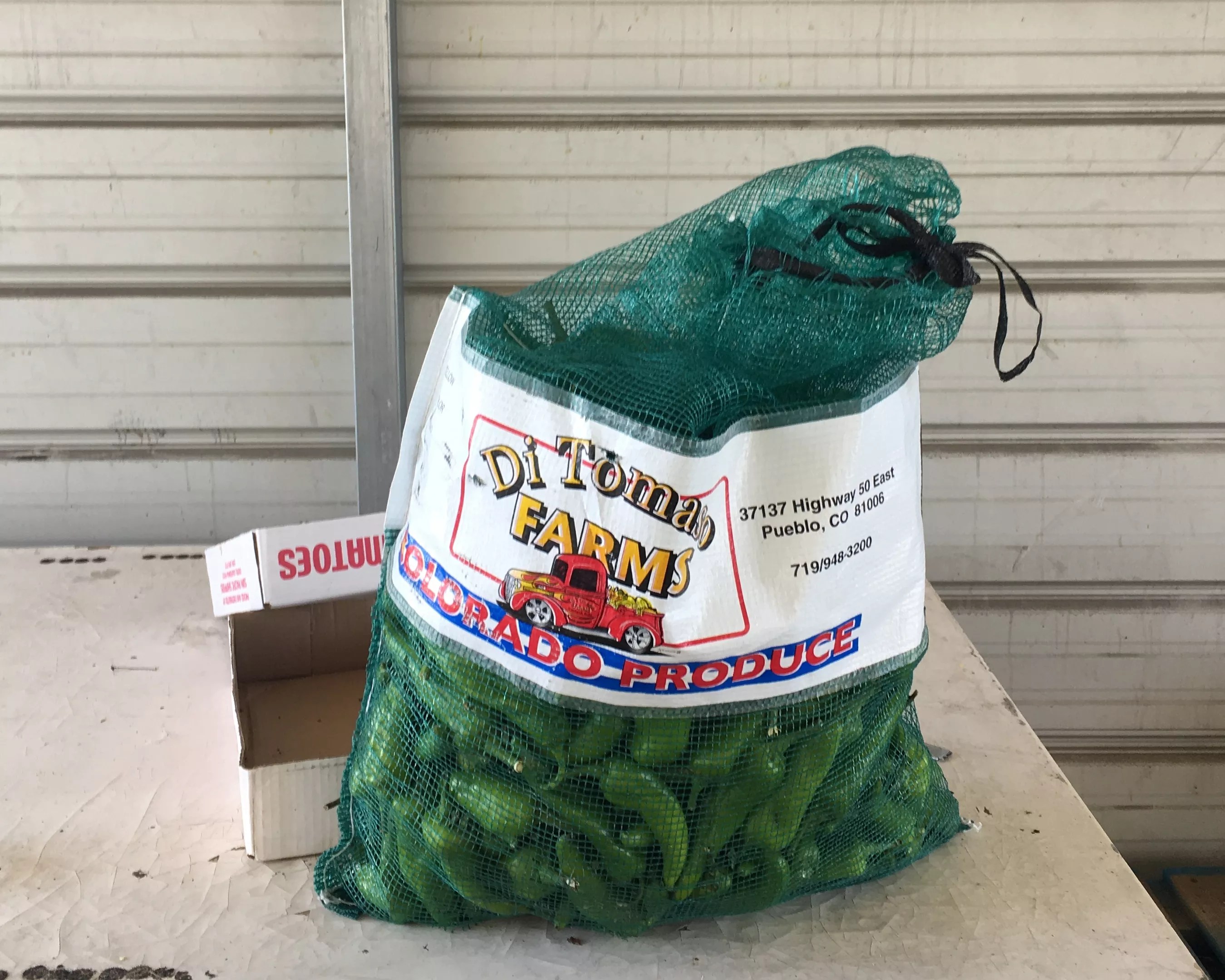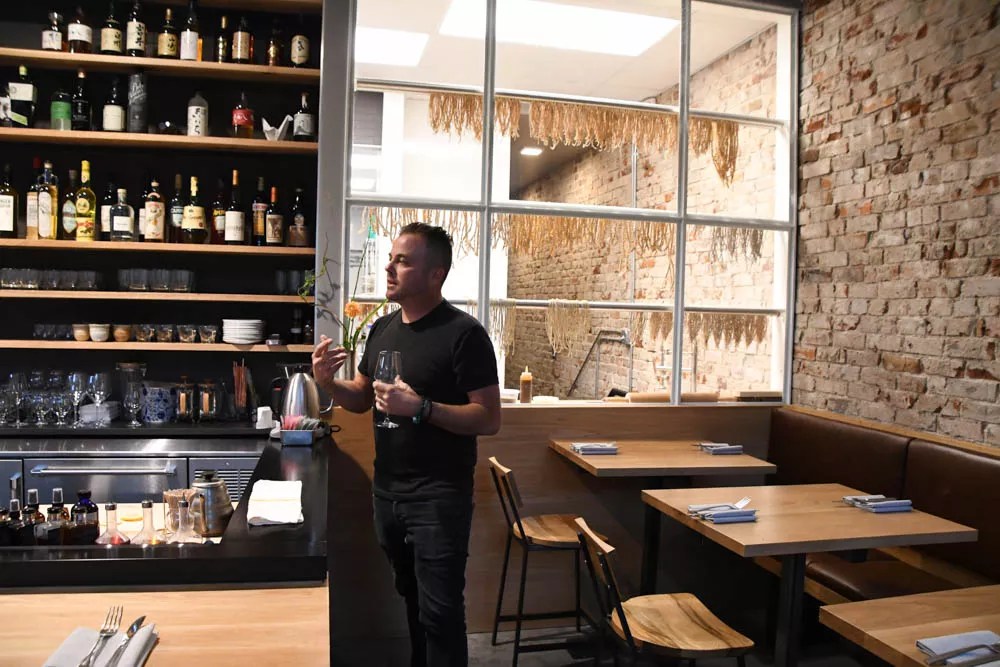
Mark Antonation

Audio By Carbonatix
Restaurants and the food industry in general made big news in 2019. Industry concerns over rising wages and real estate costs filled headlines, culinary trends drove food stories, and politics created some fun and interesting dust-ups. Here are the ten biggest restaurant-related stories to emerge in Denver over the past twelve months.

Mayor Michael Hancock unveiled a -per-hour minimum-wage proposal in front of the City and County Building on September 19.
Conor McCormick-Cavanagh
In September, Mayor Michael Hancock and the Denver City Council announced their plan to raise the city’s minimum wage, beginning with a bump to $13.80 an hour at the start of 2020 and continuing to $15.87 in 2021. While this was welcome news for activists and minimum-wage workers, folks in the restaurant industry were far from pleased. The problem, many eatery owners complained, was that the increases didn’t take into account the growing disparity between front-of-house and back-of-house pay. Colorado has a mandatory “tip credit” rule in place that allows tipped employees to be paid up to $3.02 less than minimum wage, as long as their tip earnings bring their hourly pay up to at least minimum wage (otherwise the business has to pay the difference). So restaurant owners were faced with wage increases for back-of-house employees (cooks, dishwashers, etc.) and another increase for servers, bartenders and other tipped employees who already earn well above the minimum wage. Restaurant owners and the Colorado Restaurant Association met with Hancock to discuss their concerns, and council eventually adjusted the plan, approving increases to $12.85 on January 1, 2020, $14.77 in 2021 and $15.87 in 2022.

Bar Zero and other zero-proof concepts showed a growing interest in alcohol-free dining.
Bar Zero
In January, professional counselor and former restaurant worker Emily Schrader formed SoBar, a nonprofit organization with plans to open a booze-free restaurant that would hire people in recovery from drug and alcohol dependency. Schrader changed the name to Bar Zero in July and launched the catering arm of the business while still looking for a space for the restaurant. Since the death of Anthony Bourdain in 2018, the restaurant industry has been more willing to talk about the connection between mental health, substance abuse and suicide, and the result has been a growing sober movement among chefs, servers and bartenders. Bar Zero will likely be the first of its kind in Denver when it eventually opens, offering a safe space for workers looking to avoid the typical work-hard, drink-hard lifestyle of the service industry. Other groups, such as CHOW (Culinary Hospitality Outreach & Wellness) and the Zero Proof Dinner Series, have also sprung up in the last year or two to help provide work-life balance and alternatives to dealing with stress in the business.

Colt & Gray was one of a number of 2019 closing that could foreshadow a trend.
Westword
Colt & Gray was on the forefront of the nose-to-tail and gastropub movements when it opened in 2009, but a decade later, the restaurant’s lease was ending and owner Nelson Perkins decided not renew, citing rent that would have almost doubled under a new contract. Colt & Gray wasn’t the only popular eatery to call it quits in 2019: The Populist, Mister Tuna, The Tavern Downtown, Dino’s Italian Food, Bones, the Wooden Table, Bayou Bob’s and the original location of Biju’s Little Curry Shop all closed up shop for various reasons, including higher rents, heavy street construction, real estate sales, the rising cost of doing business, and changing tastes among diners. Many industry insiders predict that this is just the tip of the iceberg, and that the rate of closings will increase next year.

Several food halls said “Hello” in 2019, but Edgewater Public Market was the biggest.
Michael Emery Hecker
Market halls and freestanding food courts (the kind with no shopping mall surrounding them) have been one of the biggest restaurant trends over the past few years, but things really kicked into high gear in 2019. Edgewater Public Market was the latest – and possibly the biggest so far, with 50,000 square feet and fifteen food and beverage vendors on hand when the food hall launched in November, with more to be added next year. Others this year included Broadway Market in the Golden Triangle, Tributary Food Hall in Golden, Rosetta Hall in Boulder and the food court at Mango House in Aurora. And 2020 promises Golden Mill in Golden, Troy Guard’s project in the Denver Tech Center and Freedom Street in Arvada’s Candelas development.

Colorado-grown green chiles were a point of pride for Governor Polis in 2019.
Mark Antonation
Colorado Governor Jared Polis and New Mexico Governor Michelle Lujan Grisham began exchanging good-natured barbs last summer about which state grows the best green chiles. Lujan Grisham held up the Hatch chile as the ideal, while Polis pointed to Pueblo as the place where the best pods grow. Then New Mexico crossed a line when it put up a billboard advertising the state as “the chile capital of the world” – right at the corner of 9th and Lincoln in Denver. There was talk of a chile cook-off to settle the debate, but that never materialized. So we conducted our own rigorously scientific (meaning not scientific at all) taste test, and Pueblo’s incendiary chiles won out – of course. The dust settled as harvest season ended, but the battle will surely heat up again come next summer.

Real beef on the left, something else on the right.
Linnea Covington
Not so long ago, veggie burgers in Denver restaurants were made of standard stuff: black beans, beets, quinoa and other veggies and grains. But then came Impossible Foods and Beyond Meat, two companies peddling juicy, pink “meat” meant to fool the eye – if not the palate – into thinking you’ve got genuine ground steer on your plate. Only a few restaurants jumped in at first, but soon nearly every burger bar, fast-food joint and neighborhood grill was sizzling up the uncanny patties. Now it’s possible to dig into an Impossible Whopper, an Impossible Qdoba burrito, a McDonald’s PLT (plant, lettuce, tomato) burger made with Beyond Meat, and the Beyond Famous Star at Carl’s Jr. We’re not sure which is weirder: the mystery behind the meat, or the fact that most of these imposters aren’t even vegan.

Vegan restaurants and food trucks offered more variety than ever in 2019.
Courtesy So RADish
Plant-based diners may have felt dissed by all the imposter-ble burgers that didn’t pass the vegan sniff test, but they got their just desserts (dairy-free, of course) at new vegan restaurants and a growing convoy of food trucks this year. Topping the list was Somebody People, which opened in September, serving chef-driven cuisine in a hip setting (read: no macrame owls as decor). The vegan scene has been slowly gaining momentum over the past two or three years, with Meta Burger, Vital Root and Beet Box opening up, and this year also saw So Radish open in Arvada. Food trucks and vegan vendors like the Veggie Whisperer, the Veggie Yeti, WongWayVeg, Vegan Van, Cholo Ass Vegan and Migration Taco made the street-food scene tempting for a growing number of Denver residents eschewing meat, eggs and dairy.

At the Wolf’s Tailor, chef/owner Kelly Whitaker explains the restaurant’s mission.
Rob Christensen
In September, Bon Appétit released its “Hot 10,” a list of the ten best new restaurants in the U.S. Chef/restaurateur Kelly Whitaker’s Sunnyside eatery, the Wolf’s Tailor, made the cut, with the food described as an “example of way-too-muchness.” Whitaker was also a semi-finalist for the James Beard Foundation’s Best Chef Southwest award, a distinction he shared with Caroline Glover, chef/owner of Annette. These are just a few examples of Denver chefs and restaurants attracting national attention, and a sign that the city’s scene is on par with those of other major food cities.

ClusterTruck offers several different menus, all cooked in one kitchen and made for delivery only.
ClusterTruck Bloomington
Ghost kitchens (where restaurants operate without a dining room) and online delivery services like GrubHub, DoorDash and Postmates have given stay-at-home customers more options than ever – far beyond the pizza and Chinese food that were the standard for years. Restaurants are having to adapt to the idea of maintaining quality while sending food out the door, even when diners are requesting ramen, pho, rare steaks and other elaborate or delicate dishes – and then complaining about it on social media. Some businesses have built themselves specifically for delivery; these include ClusterTruck, which offers several menus from one central kitchen, and Nextbite, which took over the space at 1610 Little Raven Street once occupied by Zengo and operates Monster Mac, Grilled Cheese Society and Mother Clucker there. All three show up on major delivery apps, with no indication that there’s no real restaurant. What’s next? Maybe drone food delivery to cut down on the already horrible Denver traffic.

Did you miss out on the Popeye’s fried chicken sandwich? Denver has plenty of its own.
Brandon Marshall
Did you get to compare Popeye’s evanescent chicken sandwich against its main competitor, Chick-Fil-A? Neither did we, at least not back in August, when the two companies sparred jokingly on social media – and then Popeye’s ran out of its sandwiches just two weeks after launching them. Eventually the furor blew over, and now you can walk into any Popeye’s and grab a sandwich without jockeying for a position in line. A better option: Eat something made locally at one of Denver’s own chicken sandwich spots. New shops like Chicken Rebel, Little Beast Street Food and Royal Rooster joined older favorites like Lou’s Food Bar, Birdcall and the Budlong Hot Chicken. Denver knows what the cluck is up with fried-chicken sandwiches.